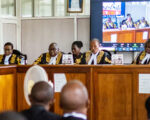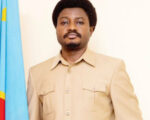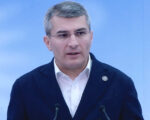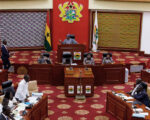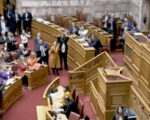>> ‘We should be more welcoming of the LGBT community’
[spacer]
En décembre 2013, saisie par plusieurs groupes religieux, la Cour suprême avait rétabli l’article 377 du code pénal, supprimé quatre ans plus tôt, qui criminalise les relations homosexuelles consenties. Une décision que le cardinal Oswaldo Gracias, archevêque de Bombay et président de la conférence des évêques indiens, avait contesté, rappelant que « si l’Église catholique était opposée à la légalisation du mariage pour les couples de même sexe, elle enseigne également que les homosexuels ont la même dignité que chaque être humain, et condamne toutes les formes de discrimination injuste, de harcèlement ou d’abus. Nous n’avons jamais considéré qu’ils étaient des criminels ! »
Une prise de position « progressiste » que réaffirme cette semaine l’archevêque âgé de 70 ans, dans un entretien accordé au quotidien « The Indu ». Il était interpellé sur ses engagements, alors que le Parlement indien s’apprête à débattre de la question de l’abrogation de l’article justement. Mais, si le discours peut surprendre, Mgr Oswald Gracias se justifie : « ce ne sera jamais que l’enseignement de l’église. Il est probable que tous ne l’ont pas bien saisi mais nous devons nous montrer plus accueillants envers la communauté homosexuelle. »
« J’ai rencontré des groupes et des associations de personnes LGBT et j’ai énormément de compréhension à leur égard. Je ne veux pas qu’ils se sentent ostracisés et c’est pour cette raison que je me suis exprimé publiquement en faveur de l’abrogation de l’article 377 du Code pénal (…) Je sais qu’il y a des points de vue divergents, des recherches opérées dans le domaine des sciences humaines ou que certains considèrent que c’est un choix volontaire de la personne (…) Personnellement, je pense que l’homosexualité ne devrait pas être criminalisée (…) Dieu leur a sans doute fait don de cette orientation sexuelle et pour cette raison, ils ne devraient pas être stigmatisés (…).
« En tant que chrétiens ou catholiques et membres de l’Église », poursuite le prélat, « nous devons leur exprimer compassion, sympathie et compréhension. Il ne suffit pas de manifester de la tolérance (…) nous devons également leur assurer un environnement serein, pour les aider (…) Si vous avez le choix, quel intérêt d’encourager de la haine ? (…) Nous devons avancer de pair avec la perception de la société, mais nous devons aussi contribuer à la faire réfléchir et faire tomber les préjugés. Dernièrement, j’ai dû intervenir pour demander à un prêtre de Bombay de se modérer, lors d’un rassemblement (…) Il est temps que le peuple indien s’ouvre aux personnes LGBT. »
Le 29 novembre, au lendemain d’une rencontre inédite entre le Premier ministre et les principaux représentants de l’opposition, profitant du défilé annuel de la Gay Pride à Delhi, le ministre des Finances du gouvernement Modi, Arun Jaitley, avait également invité la Cour suprême à revoir sa décision, estimant que, « de nos jours, il est déplacé de vouloir emprisonner » des gens qui sont « des millions dans le monde » à avoir « des préférences sexuelles différentes ». Des propos étonnants de la part d’un ministre issu du Parti du peuple (BJP, droite nationaliste), selon lequel l’homosexualité demeure une « maladie génétique ».
Terrence Katchadourian
stophomophobie.org
[spacer]
>> Archbishop of Bombay Cardinal Oswald Gracias was the voice of reason in a recent debate.
Speaking to reporters on a flight in 2013, Pope Francis outlined a new tone on the Catholic church’s stand on homosexuality. “If a person is gay and seeks God and has goodwill, who am I to judge?” he asked. As Parliament readies to discuss the issue of repealing Section 377, Indian religious leaders have tended to disagree. But Cardinal Oswald Gracias, the Archbishop of Bombay and the head of India’s National Conference of Catholic Bishops, emerged as a progressive voice.
The Hindu spoke to the cardinal on his involvement with the movement to decriminalise homosexuality and his thoughts on how the Church can encourage a more humane approach. In the midst of a debate on whether homosexuality should be considered a criminal act, he was the only religious leader who spoke out against such a move, arguing that the Church should embrace people from the LGBT community and help integrate them into society.
Finance Minister Arun Jaitley has recently said that Parliament may consider taking up the discussion on Sec 377 and Shashi Tharoor is planning to pass a private member’s Bill on the same. Can you reflect on your own involvement with this issue?
I had been reflecting on the question of whether the church should be more welcoming towards members of the LGBT community for some time. I met some groups and associations of LGBTs and I had an understanding for them. I don’t want them to feel ostracised. That’s why I came out publicly some time back saying I was in favour of decriminalisation of Section 377. When the Delhi High Court order was passed decriminalising homosexuality, they asked me whether the Church would be unhappy and I said
“No. I think it’s a good thing.” On the other hand, I fully understand why the Supreme Court turned down the Delhi HC decision, because its reasoning was also legally correct. Legislation is done by the legislators, not by the judiciary.
But personally I feel that it should not be criminalised. For me it’s a question of understanding that it’s an orientation … I know there is still research being done whether it’s a matter of choice or matter of orientation and there are two opinions on this matter. But I believe maybe people have this orientation that God has given them and for this reason they should not be ostracised from society. The Church is concerned, and if you’re Christian or catholic and if you’re part of the Church you have to have compassion, sympathy and understanding toward them.
You were the only religious leader who publicly spoke against criminalisation of homosexuality. Did you face much of a backlash at the time from other Christians and members of the Church?
Yes, people were surprised that I said it. But, personally I think that’s the thinking of the church. Not everybody perhaps has fully understood it. The church has always said people should not be discriminated against and I know the Vatican itself is not for criminalisation of these people. I have to make a distinction of course. Catholic theology makes sexual morality rather clear.
Homosexual acts have been considered improper and we do not accept gay marriage. There is no such thing as gay marriage for the church but that does not mean you throw out these people as bad. I’m not touching on the moral principle, but I think it would be unchristian really to be harsh with people from that community. If given a choice, why would you be harsh? That’s my thinking.
Interesting you mention this is actually part of the Church’s thinking. Many people assume that the Church is very rigid in it’s thinking of homosexuality and speaks of it as a sin or as being evil. Do you think that has to change?
There is judgmental language. People have presumed that it is a choice to be same-sex oriented and that I think is certainly not clear. Recently I told one of the priests in Bombay also to tone down his language against them. He was speaking at a public gathering.
There are many people who have no choice in the matter and happen to be that way. That’s the basic different starting point. People say: “You’ve chosen that and don’t think we can close our eyes to the fact that you’ve chosen that way”. But in general people have a sense of understanding. Yesterday I was with some youth who said: “We’ve never thought of it that way. We agree with you.” I guess I was surprised I was the only religious leader who spoke out.
Then again, sometimes I see politicians screaming out about this and I wonder maybe if the time has not yet come, if Indian society is not yet ready to accept people who are LGBT. We have to go along with the perception of society but we also have to make society reflect and think.
What about priests from other parts of the country? Does anybody else think similarly?
No, I don’t think so; but from abroad, certainly. I met some colleagues of mine in North America, from Europe and all. I have discussed this with them. Some of them have the same opinion as I do, not 100 per cent though.
What is the stand now with the leaders of the Church?
The church is more understanding, more welcoming, wants to be more open. Particularly this year the Pope has called for a ‘Year of Mercy’. And this should also make us reflect on being open to anybody who’s in any sort of difficulty. I think these are good people and the people I met want to work for the church and want to work for society. I think society should change its attitude towards them, be more welcoming and understanding.
You had touched on the fact that Indian society may not be ready to accept people who are LGBT. Do you think there is an unwillingness to accept people who are different?
Asian society is very traditional and the Indian society, in particular, is very traditional and resists change. (It) doesn’t want to be destabilised perhaps.
That is why I think sometimes that if society is not ready then maybe we shouldn’t push against it as there will be a backlash. But on the other hand, a group should not suffer because of that. We have to get these people integrated into society. They are different but doesn’t mean that they are bad. Maybe this is a change that will take some time to come because Indian society is truly not ready for it but it is certainly a change that should come today, or tomorrow, whatever is the best time.
Is the crucial difference between you and other religious leaders simply that you have taken time to engage with members of the LGBT community while others would simply not take that step.
Well they have approached me and I have been open to speaking with them. When you interact with them you realise that they are everybody, they are sons and daughters of our own friends and our own society. But it is still something that is hidden and in the closet. People are frightened to come out because of the lack of acceptance.
Does the Church have an important role to play in changing the mentality of people?
The church in India and also worldwide has a role to play in forming the mentality of people and the thinking of people. We should be more welcoming of people from the LGBT community and certainly less judgemental in our approach.
In fact, we just had a meeting of Bishops last month where frankly everybody agreed that we have been speaking a little too harshly about them.
The Church also has an important role to play in providing them a sense of security. It’s not just that they should be tolerated, they should also be accepted. For many of them, through no fault of their own, this is a great suffering. They may like to have a family, have children but they cannot. It’s a cross that they have to bear.








